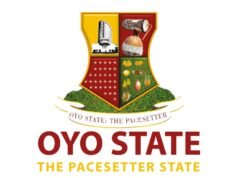If you’re considering pursuing a master’s degree in Japan, you may be wondering if your HND certificate will be accepted by universities there. The good news is that many universities and schools in Japan do accept HND certificates, as well as second and third class degrees, for their master’s programs.
In this blog post, we’ll provide you with an overview of which universities and schools accept HNDs, and what the admission process looks like. We’ll also discuss the benefits of pursuing a master’s degree in Japan, and what you can expect from the experience. So read on to learn more!
Eligibility Criteria for Master’s Programs in Japan
Table of Contents
The eligibility criteria can vary significantly across different universities and programs, making it essential for prospective students to conduct thorough research tailored to their educational background and the specific requirements of their desired institutions.
- Language Proficiency: Proficiency in Japanese or English may be necessary, depending on the language of instruction of the master’s program. International applicants may need to provide proof of language proficiency through standardized tests such as the Japanese Language Proficiency Test (JLPT) or the Test of English as a Foreign Language (TOEFL) or the International English Language Testing System (IELTS).
- Letters of Recommendation: Some master’s programs in Japan may require applicants to submit letters of recommendation from academic or professional references who can attest to the applicant’s academic abilities, motivation, and potential for success in the program.
- Statement of Purpose (or Personal Statement): Many master’s programs in Japan require applicants to submit a statement of purpose or personal statement outlining their academic background, research interests, career goals, and reasons for applying to the program. This document allows applicants to articulate their motivations and suitability for the program.
- Research Proposal (for Research-Based Programs): Applicants to research-based master’s programs may need to submit a research proposal outlining their proposed research topic, objectives, methodology, and expected outcomes. This helps assess the applicant’s research skills and alignment with the program’s research priorities.
- Entrance Examinations (if applicable): Some master’s programs in Japan may require applicants to sit for entrance examinations or aptitude tests as part of the admissions process. These exams may assess the applicant’s subject-specific knowledge, analytical skills, and aptitude for advanced study.
Each university and program may have its set of specific prerequisites, including letters of recommendation, personal statements, or interviews. Aspiring students are strongly encouraged to directly consult the admissions office of the universities they are interested in to gain accurate and up-to-date information on eligibility criteria.
Read Also: SPDC Niger Delta Postgraduate Scholarship Scheme for Nigerians 2024/2025
Japan Universities that Accept HND Certificates, Second Class and 3rd Class for Masters Degree Programs
The following list highlights some of the universities known to accommodate students with these qualifications for Master’s degree programs, provided that other admission requirements, such as language proficiency and relevant professional experience, are met:
1) Tokyo University of Foreign Studies (TUFS)
Particularly known for its focus on international studies and languages, TUFS offers several Master’s programs that consider a wide range of academic qualifications. The university values international perspectives and may offer additional language support for non-native speakers.
2) Osaka University
With a strong emphasis on research and innovation, Osaka University has programs that may accept students with HND certificates or lower undergraduate classifications, especially in fields where practical experience is highly regarded.
3) Waseda University
As one of Japan’s private universities known for its diverse student body, Waseda offers a variety of English-taught Master’s programs. The university’s graduate schools are open to evaluating candidates holistically, considering work experience and other achievements alongside academic qualifications.
4) Ritsumeikan Asia Pacific University (APU)
APU is renowned for its multicultural environment and programs in international management and Asia-Pacific studies. The university actively seeks students from varied educational backgrounds and may provide pathways for HND holders and those with lower undergraduate classifications to pursue their Master’s degrees.
5) Nagoya University
Known for its contributions to science and technology, Nagoya University has certain programs, particularly in engineering and IT, that are more flexible regarding the academic credentials of international students, provided they demonstrate strong potential in their field.
6) Hiroshima University
With a focus on peace and sustainability studies, Hiroshima University encourages applications from a broad spectrum of academic backgrounds. The university’s interdisciplinary approach to education means that practical experience and a strong personal statement can significantly bolster an application.
Each institution may have unique requirements or pathways for students with HND certificates, Second Class, or Third Class honors, including preparatory courses or bridging programs to enhance their qualifications before embarking on a Master’s degree program.
Read Also: Fully Funded Malta Scholarships 2024/2025
Japan Schools that Accept HND Certificates, Second Class and 3rd Class for Masters Degree Programs
In addition to the universities mentioned earlier, there are several schools in Japan that have shown flexibility and a welcoming stance towards students holding HND certificates, Second Class, and Third Class honors for enrollment in their Master’s degree programs. These schools recognize the value of diverse educational backgrounds and work experiences, providing opportunities for a broader range of students to pursue advanced studies in Japan. Below is a list of some of these institutions:
1) Kyoto University of Advanced Science (KUAS):
KUAS offers innovative English-taught engineering programs. The school has a history of accepting students with varied qualifications, focusing on their potential to contribute to technological advancements.
2) Tokyo Institute of Technology (Tokyo Tech)
With a reputation for excellence in science and engineering, Tokyo Tech has been open to evaluating candidates beyond their academic grades, considering research potential and professional experiences as part of the admissions process.
3) Keio University
Offering a range of English-taught programs across multiple disciplines, Keio University assesses applicants on a holistic basis. Students with lower undergraduate classifications but with strong personal achievements or significant work experience may find Keio a welcoming environment for graduate studies.
4) Sophia University
Known for its global perspective and liberal arts programs, Sophia University offers several Master’s programs that are accessible to students with HND certificates or lower degree classifications, provided they meet other program-specific criteria.
5) Hokkaido University
Emphasizing research in science, technology, and environmental studies, Hokkaido University has certain departments and programs willing to consider students with diverse academic backgrounds, focusing on their research proposals and professional experiences.
These schools often require applicants to demonstrate their readiness for graduate studies through additional documentation, such as a detailed personal statement, letters of recommendation, and, in some cases, a portfolio of work or research.
FAQS
Does Sweden university accept HND for Masters?
It depends on the university and the specific master’s degree program. Some Swedish universities, such as Lund University and Uppsala University, do accept HNDs for admission into some of their master’s degree programs. However, not all programs accept HNDs, so it’s important to check the specific requirements for each program before applying.
Does Germany accept HND for Masters Degree?
Yes, Germany does accept Higher National Diplomas (HNDs) for admission into master’s degree programs. Many German universities, including the University of Cologne, University of Bonn, and Goethe University Frankfurt, have specific programs designed for HND holders. However, the admission requirements for each program can vary, so it’s important to check the requirements of the specific program you’re interested in.
Which university in the Netherlands accepts HND for Masters?
There are several universities in the Netherlands that accept Higher National Diplomas (HNDs) for admission into their master’s degree programs. These universities include the University of Amsterdam, Erasmus University Rotterdam, and Delft University of Technology. However, it’s important to note that some programs may have additional requirements, such as a minimum grade point average or work experience.
Does France accept HND for Masters?
France does accept Higher National Diplomas (HNDs) for admission into some master’s degree programs. However, the specific requirements can vary depending on the university and the program. For example, the Sorbonne University in Paris and Sciences Po (the Paris Institute of Political Studies) both accept HNDs for certain programs.
Can I apply for Masters with my HND certificate?
Yes, you can apply for a master’s degree with your HND certificate. However, it’s important to note that not all universities and programs accept HNDs, so it’s important to check the specific requirements for the university and program you’re interested in. In addition to having a HND, most universities will also require you to have a certain grade point average (GPA) and proof of English language proficiency.
Conclusion
In conclusion, Japan is home to a number of world-class universities and schools that offer high-quality master’s degree programs. Many of these institutions accept HND certificates, second class degrees, and third class degrees from students with good academic records.
If you’re considering pursuing a master’s degree in Japan, it’s important to carefully research the universities and schools you’re interested in to make sure they accept your qualifications. The good news is that with a little research, you can find the perfect program for you in this vibrant and diverse country.









